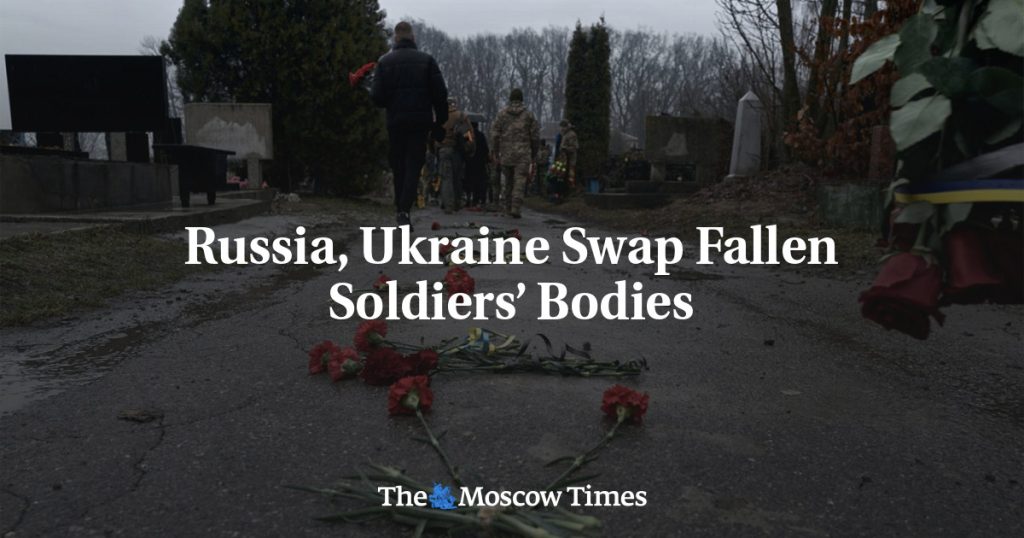Russia and Ukraine have recently exchanged the bodies of fallen soldiers, with 121 bodies repatriated by Ukraine and 29 received by Russia. The bodies were exchanged in the Donetsk, Luhansk, and Zaporizhzhia regions, with plans to transport them to forensic experts and law enforcement officials for identification. This marks the third known exchange between the two warring sides this year, with a previous exchange on March 15 involving the repatriation of 69 Russian soldiers in exchange for 100 fallen Ukrainian servicemen.
The Coordination Headquarters for the Treatment of Prisoners of War in Ukraine identified 121 soldiers as those killed in various regions, while Russian lawmaker Shamsayil Saraliyev stated that Russia received the remains of 29 soldiers. The International Committee of the Red Cross has been assisting in facilitating the exchange of bodies between Russia and Ukraine, with forensic adviser Carlos Villalobos providing support. This agreement reflects ongoing efforts to repatriate fallen soldiers and provide closure for their families amid the conflict between the two countries.
The exchange of bodies represents a humanitarian gesture amidst the ongoing conflict in eastern Ukraine, with both Russia and Ukraine demonstrating a willingness to work together to repatriate fallen soldiers. By cooperating through the International Committee of the Red Cross, both sides are able to ensure a respectful and dignified return for the deceased, allowing for proper identification and closure for their families. The coordination center in Ukraine has taken the lead in identifying the soldiers and initiating the transportation of their remains for further processing.
The exchange of bodies between Russia and Ukraine highlights the toll that the conflict has taken on both sides, with soldiers from each country losing their lives in the ongoing fighting. By prioritizing the repatriation and identification of fallen soldiers, both Russia and Ukraine are demonstrating a commitment to honoring those who have made the ultimate sacrifice in the conflict. The involvement of international organizations such as the International Committee of the Red Cross also underscores the importance of humanitarian efforts in times of war, providing necessary support and assistance for both countries.
The ongoing exchanges of bodies between Russia and Ukraine serve as a reminder of the human cost of the conflict and the importance of acknowledging the sacrifices made by soldiers on both sides. Despite the political tensions between the two countries, the repatriation of fallen soldiers demonstrates a shared commitment to honoring the lives lost in the conflict. By working together through international organizations like the International Committee of the Red Cross, Russia and Ukraine are able to provide closure for the families of fallen soldiers and ensure that their remains are properly handled and identified for a dignified return.
Overall, the recent exchange of bodies between Russia and Ukraine reflects a broader effort to address the humanitarian impact of the conflict in eastern Ukraine. By prioritizing the repatriation and identification of fallen soldiers, both countries are able to demonstrate a commitment to recognizing the sacrifices made by those involved in the conflict. The involvement of international organizations such as the International Committee of the Red Cross further emphasizes the importance of humanitarian efforts in times of war, providing essential support and assistance for the repatriation process. The ongoing exchanges of bodies serve as a poignant reminder of the human cost of the conflict and the shared goal of honoring the lives lost on both sides.


